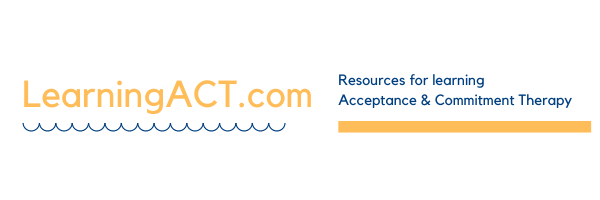Diabetes requires knowledge about proper self-care in order to prevent health complications, so hospitals frequently offer courses in diabetes self-management. However, managing diabetes requires a lot more than simply knowing what to do, it also takes overcoming the emotional barriers to living healthy. A recent randomized clinical trial shows how ACT can help with these emotional barriers.
Self-management of diabetes can be inherently distressing, as the act of monitoring and treating this condition readily leads to unpleasant thoughts and feelings. As a result, many diabetics neglect their self-management activities even though the health consequences are known. This kind of experiential avoidance was targeted in an ACT intervention developed by Dr. Jennifer Gregg, who provided a 3-hour ACT workshop as part of a standard 7-hour educational seminar for the management of diabetes. This workshop was compared to a standard educational seminar lacking ACT components. She administered a self-report measure of acceptance along with the standard physiological measure of glycated hemoglobin used in diabetes research. Her results showed a significant improvement in the physiological measure for the ACT condition but not the education condition. Furthermore, changes in acceptance predicted these improvements from pre-workshop data to follow up data 3 months later. This study suggests that adherence to the treatment regimen for diabetes is facilitated by incorporating acceptance, mindfulness, and values interventions with the educational package.
Clinical implications
When our clients are struggling with diabetes or any kind of medical problem, it may seem like a problem for their physician and they may see psychological work as irrelevant to this problem. But studies like this show that physical problems and psychological problems are related, and that treatment of avoidance with mindfulness and acceptance can facilitate healthier living and more effective management of medical problems.
For more information…
Here is a more detailed summary of the study:
A range of lifestyle adjustments are recommended for people with Type-2 diabetes. However, education about this condition and the merited changes are often not well adhered to, presumably because the act of doing them occasions unpleasant thoughts and feelings associated with the condition itself. CBT has been examined as an intervention for augmenting the impact of these experiences, but the research has provided mixed results in the effectiveness of this treatment, possibly because eliminating distressing thoughts about diabetes may not be realistic. Acceptance and Commitment Therapy may offer an alternative to this agenda, instead focusing on changing one’s relationship to distressing thoughts and feelings about having diabetes and investing in values-consistent behavior.
This intervention was a 3-hour ACT workshop protocol as part of a 7-hour educational program on diabetes self-management. Her workshop was compared to the standard 7-hour educational program which lacked ACT components. Measures included a physiological index of glycated hemoglobin, the standard measure of diabetes studies, as well as a self-report of acceptance. Measures were administered at the beginning of the workshops and at a 3-month follow up.
The results showed little-to-no-improvement in the education alone condition, while the ACT condition generated a significant and medium effect in changes for the physiological measure and the self-report of acceptance. Furthermore, changes in the self-report of acceptance significantly predicted outcomes at the 3-month follow up, providing some support for the mediational processes of the ACT model of treatment. Although this pilot study needs replication, the results provide strong preliminary support for the usefulness of ACT treatment in facilitating adherence to the medical regimen recommended for diabetes patients.
For more reading on this topic, see:
Or read the full article:
Gregg, J. A., Callaghan, G. M., Hayes, S. C., & Glenn-Lawson, J. L. (2007). Improving diabetes self-management through acceptance, mindfulness, and values: A randomized controlled trial. Journal of Consulting and Clinical Psychology, 75, 336-343.
